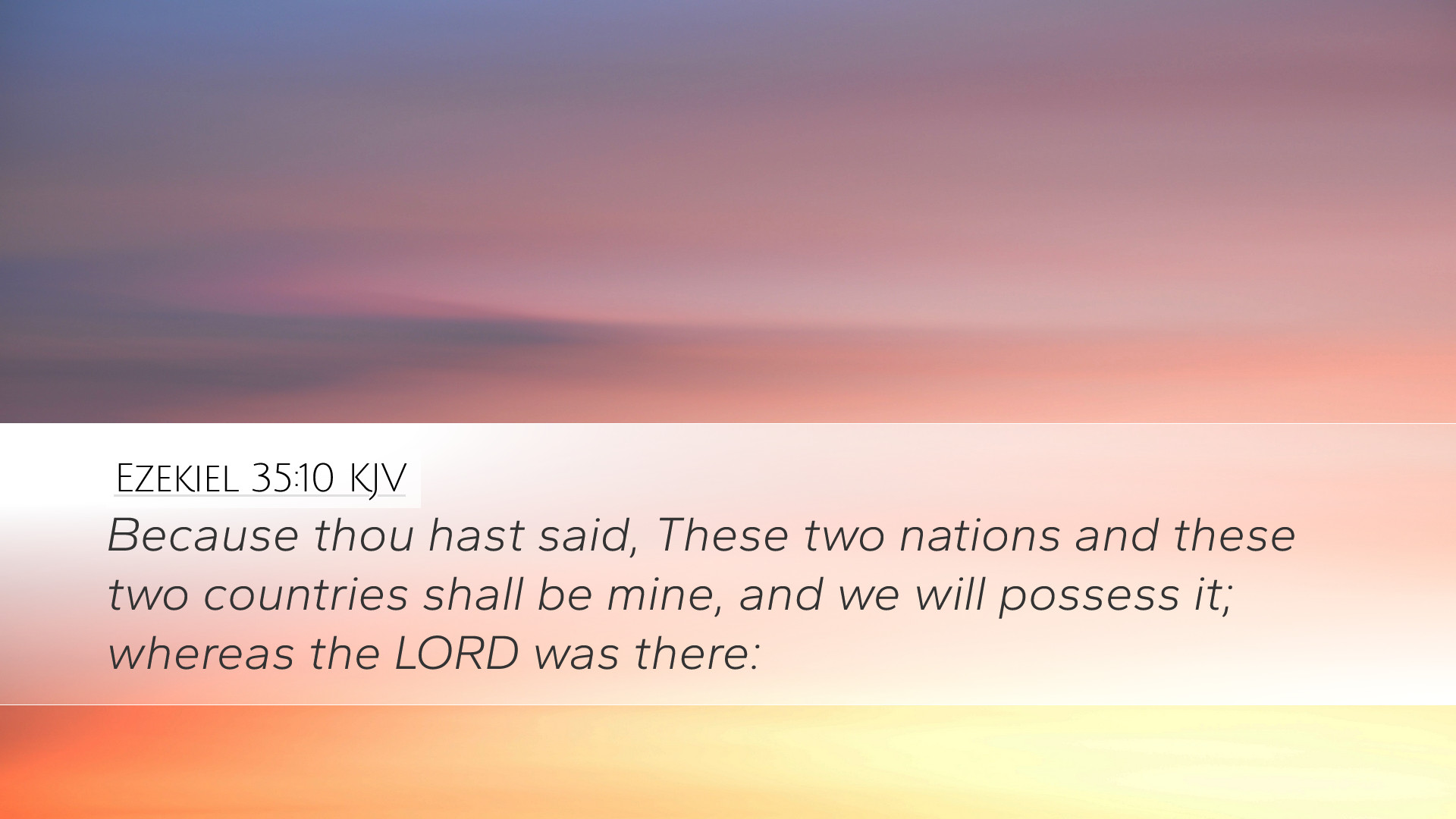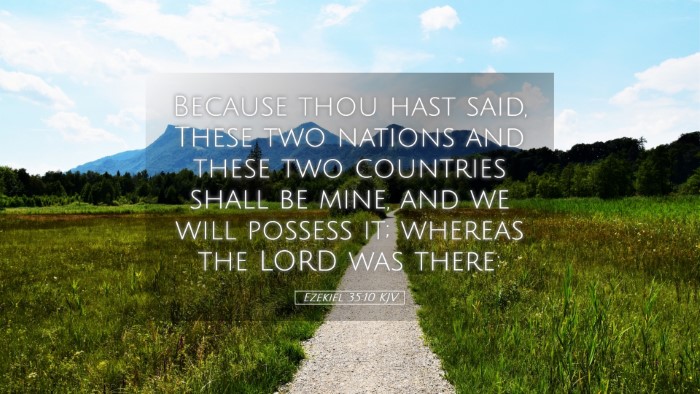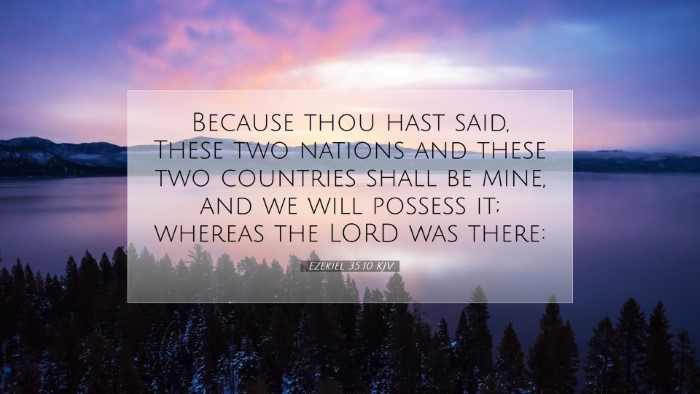Commentary on Ezekiel 35:10
Ezekiel 35:10 (KJV): "Because thou hast said, These two nations and these two countries shall be mine, and we will possess it; whereas the LORD was there."
Introduction
The prophecy in Ezekiel 35 delivers God's judgment against Edom, which holds significant implications for the nations surrounding Israel and their attitudes toward God's chosen people. This commentary explores the deeper meanings behind Ezekiel 35:10, shedding light on the implications of pride, arrogance, and the consequences of opposing God's will.
Contextual Analysis
The context of Ezekiel's prophecy illustrates a time when Edom rejoiced over the calamities that befell Israel. Throughout the prophetic writings, a recurrent theme emerges: nations' attitudes toward God's people directly affect their own fate and relationship with God.
Key Themes
- Pride and Ambition: The phrase "these two nations and these two countries shall be mine" reflects the prideful ambition of Edom, confident in their ability to take what rightfully belongs to God and His people. This echoes Proverbs 16:18, highlighting the danger of pride leading to destruction.
- Divine Sovereignty: The acknowledgment that "whereas the LORD was there" serves as a reminder of God's omnipresence. No land, nation, or people can lay claim to what God has established. This reinforces the theological concept of divine sovereignty—a theme prevalent in both Old and New Testaments.
- The Importance of Humility: Throughout scripture, we see a call to humility, especially concerning how nations and individuals treat God's chosen. Edom's neglect of this principle sets them on a path towards divine judgment.
Commentary Insights
Matthew Henry emphasizes the perilous mindset of Edom, suggesting that their claim over Israel's land was not only a display of arrogance but also ignorance of God's purpose for His chosen people. He asserts that God will not allow any nation to assert dominance over His inheritance.
Albert Barnes elaborates on the historical animosity between Edom and Israel, pointing out that Edom saw the downfall of Israel as an opportunity to expand its influence. However, Barnes notes that Edom's aspirations were built on a fragile foundation, as they operated against the divine will of God.
Adam Clarke highlights that the prophecy serves as a warning to all nations. He argues that the essence of the proclamation is universal, emphasizing that God is a jealous God who protects His possessions. Clarke illustrates that no individual or nation can successfully rise against the divine decree without facing consequences.
Theological Implications
Theological interpretations of Ezekiel 35:10 reveal profound lessons regarding human ambition and the nature of God's justice. This verse serves as a crucial intersection between God's sovereignty and human free will, prompting deeper questions about divine justice and mercy.
Furthermore, it raises considerations for pastoral and theological practice regarding how leaders manage their ambitions and vision. The attempt to seize what belongs to God—spiritually or materially—shall incur divine retribution, emphasizing the need for humility and acknowledgment of God's rightful claim over all things.
Application for Believers
- Assessing our Ambitions: Believers are urged to examine their ambitions realistically and in the light of God’s Word. Are our desires aligned with God's purpose or rooted in pride?
- Recognizing God’s Sovereignty: Acknowledging that the Lord is present in all aspects of life encourages trust and reliance upon His plans rather than our own.
- Promoting Unity: The verse can be seen as a call for the church to promote unity and avoid division, as seen in the relationships among nations and communities. The church should focus on collective purpose under God's kingdom.
Conclusion
The warning issued in Ezekiel 35:10 is timeless, reminding both nations and individuals of the perils of prideful ambition and the realities of divine judgment. Through the insights of esteemed commentators like Matthew Henry, Albert Barnes, and Adam Clarke, we glean that God's sovereignty is unassailable, and any attempt to defy it leads to inevitable consequences.
As we reflect on this passage, let us strive to cultivate humility in our personal aspirations and communal relationships, always recognizing that "the LORD was there," abundantly providing for and protecting His people.


